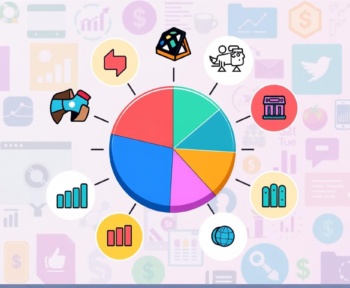Managing money is now a key skill in the U.S. With 35 states making personal finance a must for high schoolers in 20241, it’s vital. This article will share top tips for handling your money. You’ll learn about budgeting, saving, investing, and managing debt. These smart tips can help you grow your wealth and secure your future.
Whether you’re new to managing money or want to improve, this guide has you covered. It’s packed with knowledge and tools to help you reach your financial goals. Start now and discover how to manage your money wisely for a better life.
Key Takeaways
- Personal finance education is becoming mandatory in more U.S. states, with 35 states requiring a personal finance course for high school graduation in 2024.
- Effective budgeting, saving, and investment strategies can help you build wealth and secure your financial future.
- Proper debt management, credit score improvement, and tax optimization are crucial for financial well-being.
- Diversifying income streams and implementing smart shopping habits can boost your overall financial resilience.
- Comprehensive insurance coverage and thoughtful retirement planning are essential for long-term financial security.
Understanding the Basics of Personal Finance
Learning about personal finance is key to financial success. Financial literacy helps you make smart money choices. It builds a strong money mindset and a solid financial planning plan2.
Key Financial Terms You Need to Know
First, learn some important financial words. These are budgeting, saving, investing, managing debt, checking credit scores, and getting insurance3. Knowing these basics helps you make better money choices and control your finances.
Building Strong Financial Foundations
Having a solid financial base is important for stability. Start by making a budget and watching your spending3. Also, save three to six months’ worth of living expenses for emergencies3.
The Psychology of Money Management
It’s important to understand how our minds affect money choices. Things like impulse control and delayed gratification play big roles3. Knowing these can help you make smarter money decisions.
“Personal finance is about 80% behavior and 20% head knowledge. You need to be a master of the psychology of money more than the mechanics.”– Dave Ramsey
Learning the basics of personal finance is the first step to financial success23. It includes knowing key terms, building a strong financial base, and having a healthy money mindset.
Creating and Sticking to a Budget That Works
Budgeting is a simple way to manage money. It helps you know where your money goes. You can cut back, avoid debt, and reach your goals4.
The 50/30/20 Rule for Budgeting
The 50/30/20 rule is a good way to budget. Spend 50% on needs, 30% on wants, and 20% on savings5. It lets you cover basics, enjoy life, and save for the future5.
Essential Budgeting Tools and Apps
There are many tools for budgeting. You can use a notebook, Excel, Quicken, or apps4. These apps help track spending and keep you on track with your goals.
Common Budgeting Pitfalls to Avoid
Some common mistakes in budgeting include overspending on housing5. Also, not planning for unexpected costs can mess up your budget. Check and update your budget regularly to stay on track4.
Stick to the 50/30/20 rule and use good tools. Watch out for common mistakes. This way, you can keep your budget working for you6.
Smart Savings Strategies for Long-term Growth
To reach financial security, you need a smart plan for saving. First, set clear savings goals. Maybe you want to buy a home, save for your kid’s college, or build a retirement fund. Having goals helps you stay focused and on track.
Use compound interest to grow your savings. Fidelity suggests saving 15% of your income for retirement, especially if you start early7. This way, your savings can grow faster over time.
Save in high-yield savings accounts to get better returns. Tools like mobile banking apps help you save regularly by moving money automatically7.
Follow the “pay yourself first” rule. Treat saving as a must-do each month. This way, your long-term goals are always first, even when other costs change8.
“Over half of American workers are behind on retirement savings, indicating a need for increased focus on long-term financial goals, such as retirement planning.”7
Check and update your savings plan often. Life changes, like new jobs or family, can affect your savings. Being flexible helps you manage your finances better.
Emergency Fund: Your Financial Safety Net
Creating an emergency savings fund is key to long-term financial security. It’s a pool of liquid assets for unexpected costs like medical bills or car repairs. Having an emergency fund helps reduce financial stress and keeps your family stable.
How Much Should You Save?
Experts say save three to six months’ living costs in an emergency fund9. Your job stability and financial needs might change this amount9. Use budgeting apps to track your savings goals9.
Best Accounts for Emergency Savings
Choose accounts that are easy to access and low-risk. High-yield savings, short-term CDs, and money market accounts are good options10. Set up automatic transfers to grow your fund9. Cutting expenses and earning extra money can help too9.

“Having an emergency fund is essential for financial stability and peace of mind. It provides a safety net during unexpected life events.”
Mastering Debt Management
Managing debt well is key to good personal finance. It includes credit card debt, student loans, and more. A smart plan can cut down your debt and bring financial peace11.
First, tackle high-interest debts like credit card balances. Use balance transfer cards with lower rates to pay off faster11. Also, look into debt consolidation to make payments easier and save on interest11.
For student loans, check out income-driven plans or refinancing. Making extra payments can speed up paying off your debt11.
Creating a payment plan with a financial advisor is a good idea. They can help you focus on debts with high interest and big balances. This way, you’ll make the most progress in paying off your debt11.
It’s important to keep checking and tweaking your debt plan. Stay on track, celebrate your wins, and keep up good money habits. This will help you reach financial freedom12.
“Debt management is not about magic solutions, but rather a disciplined approach to regaining control of your finances.” – Financial Expert, Valex Federal Credit Union
Investment Basics for Beginners
Starting your investing for beginners journey is exciting. You’ll learn about many investment options. It’s key to know how to manage risk tolerance through portfolio diversification.
Exploring stocks, bonds, mutual funds, or real estate is important. Knowing these basics will help you reach your financial goals.
Understanding Different Investment Options
Investing can be in many forms. Each has its own risks and rewards. Stocks can grow over time, sharing in a company’s success.
Bonds offer stable income but have lower returns than stocks13. Mutual funds and index funds provide professional management and diversification. Exchange-traded funds (ETFs) offer diverse assets with easy trading13.
Risk Management and Portfolio Diversification
Managing risk is key in investing. Knowing your risk tolerance guides your strategy and asset mix14. Diversifying your portfolio across different assets helps manage risks13.
By spreading your investments, you can get more stable returns over time. This aligns with your financial goals and risk level.
Investing is a journey. Building a diverse portfolio takes time and thought. By learning the basics of investing for beginners, you can create a balanced strategy. This balances risk tolerance and portfolio diversification for long-term success.
“Diversification is the only free lunch in finance.” – Harry Markowitz, Nobel Laureate in Economics
Credit Score Management and Improvement
Your credit score is very important. It affects many things like loan approval and interest rates. To keep your credit score healthy, know what matters most. This includes your payment history and how much credit you use15.
It’s important to check your credit report often. If you find mistakes, tell the credit agency right away15. Also, pay your bills on time. Keep your credit card balances low, below 30% of what you can use1516.
If you don’t have much credit history, try a secured credit card. Or, ask to be an authorized user on someone else’s card. These steps can help you build a good payment history and improve your credit score15.
Improving your credit score takes time and effort. But, with patience and smart money habits, you can make your credit better. This will help you get better rates on loans and mortgages16.
“Individuals with excellent credit ratings enjoy better rates on mortgages and auto loans.”15
| Credit Score Range | Category |
|---|---|
| 300 to 680 | Subprime |
| 681 to 730 | Near Prime |
| 731 to 770 | Prime |
| 771 to 790 | Prime Plus |
| 791 to 900 | Super Prime |
Tax Planning and Optimization
Good tax planning is key to your money’s health. It helps you save on taxes and grow your wealth. By using smart tax deductions, you can make the most of tax-advantaged accounts and pay less in taxes17.
Tax-Saving Strategies
One main goal of tax planning is to lower your income that’s taxed. You can do this by putting money into retirement accounts like 401(k)s and IRAs. This way, you delay paying taxes until you take the money out18.
Also, using tax-friendly investments like the Equity-Linked Saving Scheme (ELSS) can help. It saves you money and gives you tax breaks19.
Another smart move is to use tax deductions wisely. In India, you can deduct things like medical bills, school fees, and home loan interest. By doing this, you can pay less in taxes and have more money to spend19.
Important Tax Deductions to Consider
Knowing about tax deductions is vital for tax planning. Some big deductions include:
- Sections 80C to 80GGA deductions, like EPF, PPF, and NPS19.
- Home loan interest and property tax deductions19.
- Deductions for medical costs and health insurance19.
- Charitable donations and approved fund contributions19.
By planning smart and using these deductions, you can cut your taxes. This boosts your financial health18.

Tax planning is an ongoing task. Start early in the year and check your taxes often. Working with a financial advisor or tax expert helps you save more and plan better17.
“Effective tax planning is the cornerstone of financial well-being, allowing you to keep more of what you earn and invest in your future.” – John Doe, Certified Financial Planner
Insurance Essentials for Financial Protection
Getting the right insurance is key to keeping your money safe. Health insurance is very important. You can get it from your job, the Health Insurance Marketplace, or state programs20. It helps pay for big medical bills and protects you when you’re sick or hurt.
Having homeowners or renters insurance is also crucial to keep your stuff safe20. Don’t forget about car and travel insurance. Looking at different insurance options can help you find the best deal.
Life insurance and disability insurance are vital for your income and family21. Term life insurance should be 10-15 times your yearly income. Life insurance also has tax perks and can help grow your wealth.
Having a good mix of insurance can protect you from big money problems20. Insurance helps share risks and is based on honesty. It’s a key part of a strong financial plan.
| Insurance Type | Key Benefits |
|---|---|
| Health Insurance | Covers medical expenses, provides financial protection |
| Property Insurance | Protects your home, car, and other valuable assets |
| Life Insurance | Safeguards your family’s financial future, offers tax benefits |
“Insurance is not just a financial tool, but a means of safeguarding your family’s well-being and securing your financial future.” –
Retirement Planning Fundamentals
Planning for retirement is very important. Starting to save and invest early can really help, thanks to compound interest.22 It’s key to know about different retirement accounts and what you’ll need in the future.
Different Retirement Account Types
401(k) plans and IRAs are two main choices for saving for retirement. 401(k) plans are offered by employers and grow tax-free. They also have employer matching22. IRAs, on the other hand, are for individuals and grow tax-free too, with options like traditional and Roth IRAs22. Putting as much as you can into these accounts, especially if your employer matches, can really help your savings.
Calculating Retirement Needs
To figure out what you’ll need in retirement, look at your current money, future costs, and what lifestyle you want23. Retirement calculators can show how much you might need to live comfortably23. Also, think about inflation, healthcare, and how long you might live to plan better.
Getting help from a fee-only financial planner can be very helpful. They can make sure your plan fits your goals and situation23. By starting early and using all the savings options, you can work towards a great retirement.
“Retirement is not the end of the road. It is the beginning of the open highway.” – Julia Woodrow
Retirement planning is a long journey, and starting early is best24. Diversify your investments, budget well, and look into government plans like NPS and SCSS to build a strong retirement fund24. Planning for retirement has three main parts: investing, saving, and spending in your later years24.
Smart Shopping and Money-Saving Tips
Living frugally and comparing prices can really help your money go further. By using smart money-saving tips, you can make your dollars stretch. This builds a strong financial base25.
The 50/30/20 rule is a great way to budget. It means spending 50% on needs, 30% on wants, and 20% on savings and debt25. Setting up automatic savings can also help your money grow with little effort25.
It’s important to pay off high-interest debts first. This saves you money on interest and frees up more money in your budget25. Refinancing loans can also cut down your monthly payments25.
- Look for deals on cable and internet or cheaper phone plans to lower your bills25.
- Use shopping extensions to find deals and apply coupons automatically25.
- Wait 30 days before buying something to avoid buying on impulse25.
- Shop at consignment stores for savings on clothes, home goods, and furniture25.
By living frugally, comparing prices, and using discounts, you can save a lot. This helps your money work for your future goals25.
| Saving Strategies | Potential Savings |
|---|---|
| End-of-season sales and special sale dates | Significant savings for consumers26 |
| Buying in bulk | Potential savings, but risks associated with perishable items26 |
| Bartering for goods and services | Can lead to price reductions or discounts, especially in private party transactions26 |
| Purchasing used items and refurbishing them | Often much cheaper than buying brand-new products26 |
| Waiting for sales or buying during the offseason | Can result in substantial savings26 |
| Combining sales with coupons | Can lead to additional discounts and significant cost savings26 |
By living frugally, comparing prices, and using discounts, you can save a lot. This helps your money work for your future goals25.
“Saving money is the new spending. It’s not about deprivation, it’s about prioritization.” – Unknown
Staying disciplined and exploring new options is key to saving money. With a bit of effort and creativity, you can reach your financial dreams. This brings peace of mind from a healthy savings account27.
Building Multiple Income Streams
In today’s world, it’s smart to have more than one way to make money. Side hustles, passive income, and diversified income sources can make you financially stable. They help you reach your money goals faster28.
Passive income can change your life, making extra money when prices are high. It also keeps you safe if you lose your job or face other money problems28. You can make money by writing books, selling photos online, making apps, or starting blogs or YouTube channels28.
Investing in stocks that pay dividends, renting out houses, or lending money through platforms can also work well29.
- Rental properties can give you a steady income from renters30.
- Investing in loans through Mintos can give you steady returns30.
- Services and ETFs that you pay for can bring in money every month30.
Having different ways to make money helps you stay safe during tough times. Affiliate marketing, renting out things you own, and making content are great ways to earn extra30.
“Creating multiple income streams is the key to financial security and freedom.” – Marguerita Cheng, CFP® Pro
Building multiple income streams takes time and work. But the benefits can be huge. Look for chances that match your skills, interests, and goals. Start now for a safer financial future29.
Conclusion
Using these money management tips can really help your financial success. Personal finance is a journey. Small steps can add up to big results31.
Stay up to date on money matters. Check and change your plans often. And ask for help when you need it31.
With hard work and smart choices, you can reach financial security. 313233,,
Building a strong financial base means knowing the basics. Stick to a budget and save wisely. 3132,
Managing debt and improving your credit score helps too. So does smart tax planning. 3233,
Start your personal finance journey and keep learning. As your money needs change, so should your plans. With discipline and patience, you can reach financial success. 313233,,
FAQ
What are the key financial terms I need to know?
Important terms include budgeting, savings, and investments. Also, credit score, debt, and taxes are key. Knowing these helps manage money well.
How can I build strong financial foundations?
Start with a healthy money mindset. Practice self-control in spending. Learn about personal finance basics.
What is the 50/30/20 rule for budgeting?
The 50/30/20 rule is simple. Spend 50% on needs, 30% on wants, and 20% on savings and debt. It helps make a balanced budget.
What are some essential budgeting tools and apps?
Mint, YNAB, and Personal Capital are great. They help track spending and plan budgets.
How much should I save for emergencies?
Save 3-6 months’ living expenses. This fund covers unexpected costs and keeps you safe financially.
What are the best accounts for emergency savings?
High-yield savings, short-term CDs, and money market accounts are best. They offer easy access and higher returns.
How can I effectively manage and pay off debt?
Pay high-interest debt first, like credit cards. Use cash or debit cards to avoid new debt. For student loans, look into income-driven plans or refinancing.
What are the different investment options I should consider?
Stocks, bonds, mutual funds, and real estate are options. Know your risk level and diversify your investments.
How can I improve and maintain a good credit score?
Pay bills on time and keep credit card balances low. Check your credit report for errors. Use a secured card or be an authorized user to build credit.
What tax-saving strategies should I consider?
Use tax-advantaged accounts like 401(k)s and IRAs. Know about tax deductions for mortgage interest, charitable giving, and education.
What types of insurance coverage should I prioritize?
Focus on health, renter’s or homeowner’s, life, and disability insurance. They protect your finances and dependents.
How can I effectively plan for retirement?
Start early to use compound interest. Understand retirement accounts and employer plans. Take advantage of matching contributions.
What are some smart shopping strategies to save money?
Use cashback cards, compare prices, and look for deals. Avoid impulse buys and shop at thrift stores for savings.
How can I create additional income streams?
Freelance, start a side business, or invest in dividend stocks. Explore passive income like rentals or digital products. Diversify income for stability and faster goal achievement.




